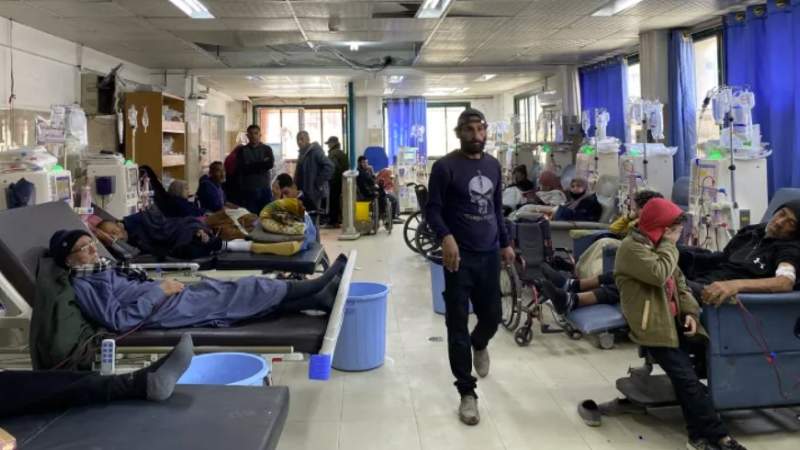Amid the total collapse of Gaza’s healthcare system due to the ongoing Israeli offensive, patients with chronic and serious illnesses are being left without care or treatment, facing a dire and uncertain future.
The continuous bombardment has disabled over 60% of primary healthcare facilities, with only 36 hospitals partially operational. For the estimated 350,000 Gazans suffering from chronic conditions – including diabetes, hypertension, heart disease, cancer, and kidney failure – access to even basic medication or procedures has become nearly impossible.
Among the most vulnerable are 10,000 kidney failure patients, 1,200 of whom require regular dialysis. Medical sources now report that sessions have been reduced from four hours to just three, only three times a week, leading to dangerous toxin buildup. Tragically, 41% of kidney patients have already died due to lack of treatment.
Cancer patients face compounded suffering: 90% of specialized therapeutic nutrition has disappeared from markets, and vital drugs are unavailable. Pediatric oncology departments are on the verge of total breakdown, and opportunities for external treatment are blocked due to closed crossings.
A recent field study revealed that medication adherence has plummeted from 90% pre-war to between 9% and 59%. Some patients have gone over two months without treatment.
The insulin shortage has caused severe complications among diabetics, and untreated hypertension has led to a sharp rise in strokes and heart attacks. Seizure episodes have increased by 52%, and 23% of asthma patients now require frequent hospitalization.
One kidney patient shared: “We first received dialysis at Al-Kaabi Hospital until it was bombed. Then we moved to Al-Aqsa Hospital, and finally to Al-Quds… Each time we search for a place to cleanse our bodies before toxins take over.”
While global media often focuses on bombings and displacement, the silent suffering of chronic disease patients remains largely overlooked. These individuals are casualties of what local health officials call a “slow-death machine” fueled by medication shortages and the systematic destruction of medical infrastructure.
The Palestinian Health Ministry and WHO are calling for immediate and safe medical evacuations for critically ill patients, emphasizing that many lives can still be saved if they receive treatment outside Gaza.
As the health system buckles under relentless attacks, those with chronic conditions are left trapped – their fate hanging between a collapsed medical system and closed borders.
Israel launched a genocidal war on Gaza on October 7, 2023, after the Palestinian resistance movement Hamas waged the surprise Operation Al-Aqsa Storm against the occupying entity in response to the Israeli regime’s decades-long campaign of bloodletting and devastation against Palestinians.
The regime’s bloody onslaught on Gaza has so far killed at least 62,622 Palestinians, mostly women and children, and injured more than 157,673 others. Thousands more are also missing and presumed dead under rubble.

